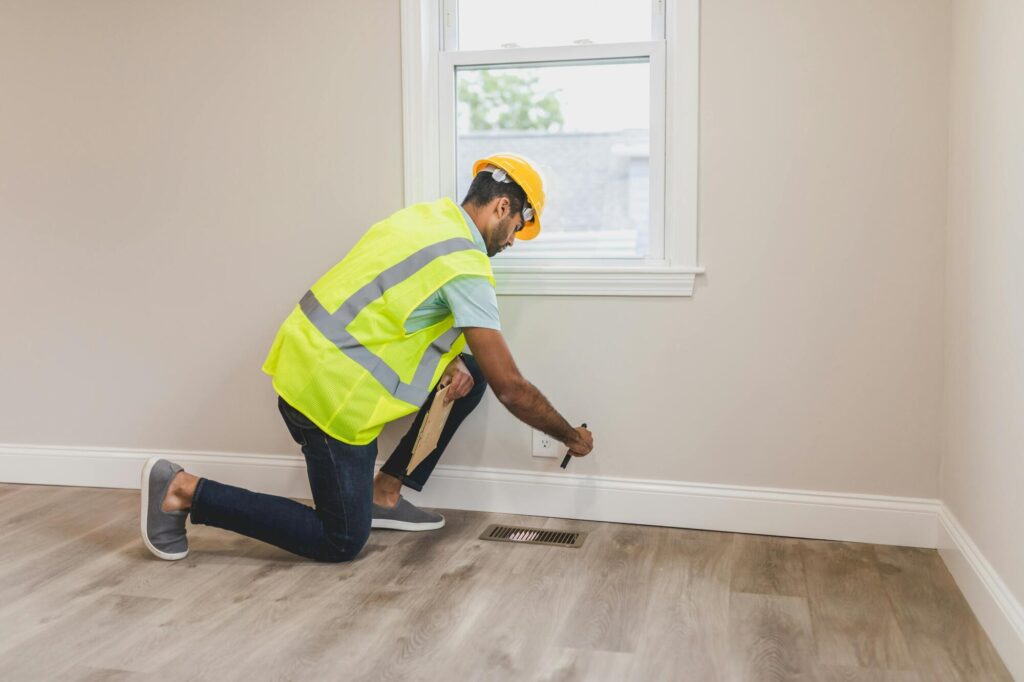Buying a home is an exciting journey, but it can also be overwhelming. One important step in purchasing a home is the professional home inspection says Gilroy Property Management Company. A home inspection helps you understand the condition of the property you are considering, and it can reveal important information that may affect your buying decision.
But what should you expect during this process? A professional home inspection offers insights into the safety and functionality of the home, and it can protect your investment.
This article will explore every aspect of the home inspection, including what happens, how long it takes, and why it’s essential for determining the home value.
Understanding Home Inspections
A home inspection is a comprehensive examination of the physical structure and systems of a home. Inspections are typically performed by trained and certified professionals who have the skills to evaluate various components of a house.
During a home inspection, the inspector looks for issues such as structural problems, plumbing leaks, electrical issues, and roof conditions. They also check heating and cooling systems, windows, doors, and even the home’s foundation.
When Should You Get a Home Inspection?
It’s crucial to have a home inspection conducted after your offer on a house has been accepted, but before closing the deal. This timing allows you to address any significant issues found during the inspection. If serious problems are uncovered, you may reconsider your decision or negotiate repairs with the seller.
In some areas, including Georgia, home inspections are standard practice. Knowing that you’ll have a chance to assess the home before making a final commitment brings peace of mind to buyers.
How Long Does a Home Inspection Take?
The duration of a home inspection can vary based on several factors, including the size and age of the home. Typically, home inspections can take anywhere from 2 to 4 hours. Larger homes or those that are older may require additional time due to the complexity of their systems.
Inspectors may also take more time to inspect homes with unique features, such as basements or rooftop decks. While waiting, buyers are encouraged to take notes and ask questions, as this is a valuable time to learn directly from the expert.
The Home Inspection Process
Understanding the steps involved in a home inspection can help you feel more comfortable during the process. Here’s what you can typically expect:
Arrival at the Property
The inspector generally arrives at the property and begins by walking through the home with the buyer and their agent. This initial walkthrough provides an overview of the inspection process and areas of focus. It’s also an excellent opportunity for buyers to ask questions and gain insight into the home’s condition.
Inspection of Major Systems
The inspector will evaluate major systems such as plumbing, electrical, and HVAC (heating, ventilation, and air conditioning). Each system is checked to ensure it operates efficiently and meets safety standards. Identifying issues early helps prevent costly repairs and ensures the home is safe and functional.
Roof and Exterior Assessment
The roof and exterior areas are carefully examined for any signs of wear, damage, or leaks. The inspector will assess the condition of shingles, gutters, siding, and drainage systems. This step is vital because exterior issues can significantly affect the home’s long-term value.
Inspection of Interior Spaces
Inside the home, the inspector conducts a thorough room-by-room evaluation. They check walls, ceilings, flooring, doors, and windows for any visible defects or operational issues. This detailed inspection helps ensure that every part of the interior meets quality and safety expectations.
Reporting Findings
After completing the inspection, the inspector prepares a comprehensive report summarizing their observations. This document includes photos, descriptions of concerns, and professional recommendations for repairs or improvements. Buyers can use this report to make informed decisions and negotiate with confidence.
The Importance of Home Inspections
Home inspections are essential when purchasing a property. They can uncover hidden issues that may not be visible to the untrained eye. Many buyers may try to save money by forgoing an inspection; however, this could lead to a costly mistake later on.
Most home buyers opt for an inspection. This demonstrates the significance of ensuring a property is safe and suitable before finalizing the deal. A thorough inspection can often save buyers from spending thousands on repairs later.
Investing in home inspections in Georgia ensures a well-informed choice, ultimately protecting your investment. Always remember that a thorough inspection is a critical step in securing your dream home. Be proactive, ask questions, and take full advantage of the expertise available to you.
Potential Red Flags
While many homes are in great condition, some may raise concerns during the inspection. If the home has multiple renovations, ensure they were done correctly. Poor workmanship can lead to further complications.
Cracks in the foundation or uneven floors can signify serious problems. Addressing these issues may require extensive repair funds.
Look for stains on walls or ceilings, which indicate previous water issues. This could lead to mold or structural problems if not fixed immediately.
Negotiating Repairs After Inspection
After receiving the inspection report, you may decide to negotiate with the seller if significant issues are discovered. This step is an essential part of the home-buying process.
Request Repairs
If repairs are necessary, buyers can ask the seller to address specific issues before closing. This approach ensures that problems are fixed professionally and that the home is in better condition upon purchase. Always request written confirmation of completed repairs and keep records for your peace of mind.
Price Negotiation
When repair costs are substantial, buyers may request a reduction in the purchase price instead. This allows buyers to handle the repairs themselves after closing, ensuring the work meets their standards. Negotiating a lower price can also help offset unexpected expenses uncovered during the inspection.
Seller Contributions
In some cases, sellers may agree to offer financial credits toward the buyer’s closing costs. These contributions help balance repair expenses while keeping the transaction moving forward smoothly. It’s a flexible solution that benefits both parties and can make the deal more appealing overall.
The Value of a Professional Home Inspection
Home inspections play a vital role in the home-buying process, offering insights that can significantly affect the home value. With the inspector’s expertise, buyers can make informed decisions, knowing they are purchasing a suitable and safe property. Understanding what to expect during a professional inspection can ease anxiety and lead to a positive experience.
Visit our website and read more.






